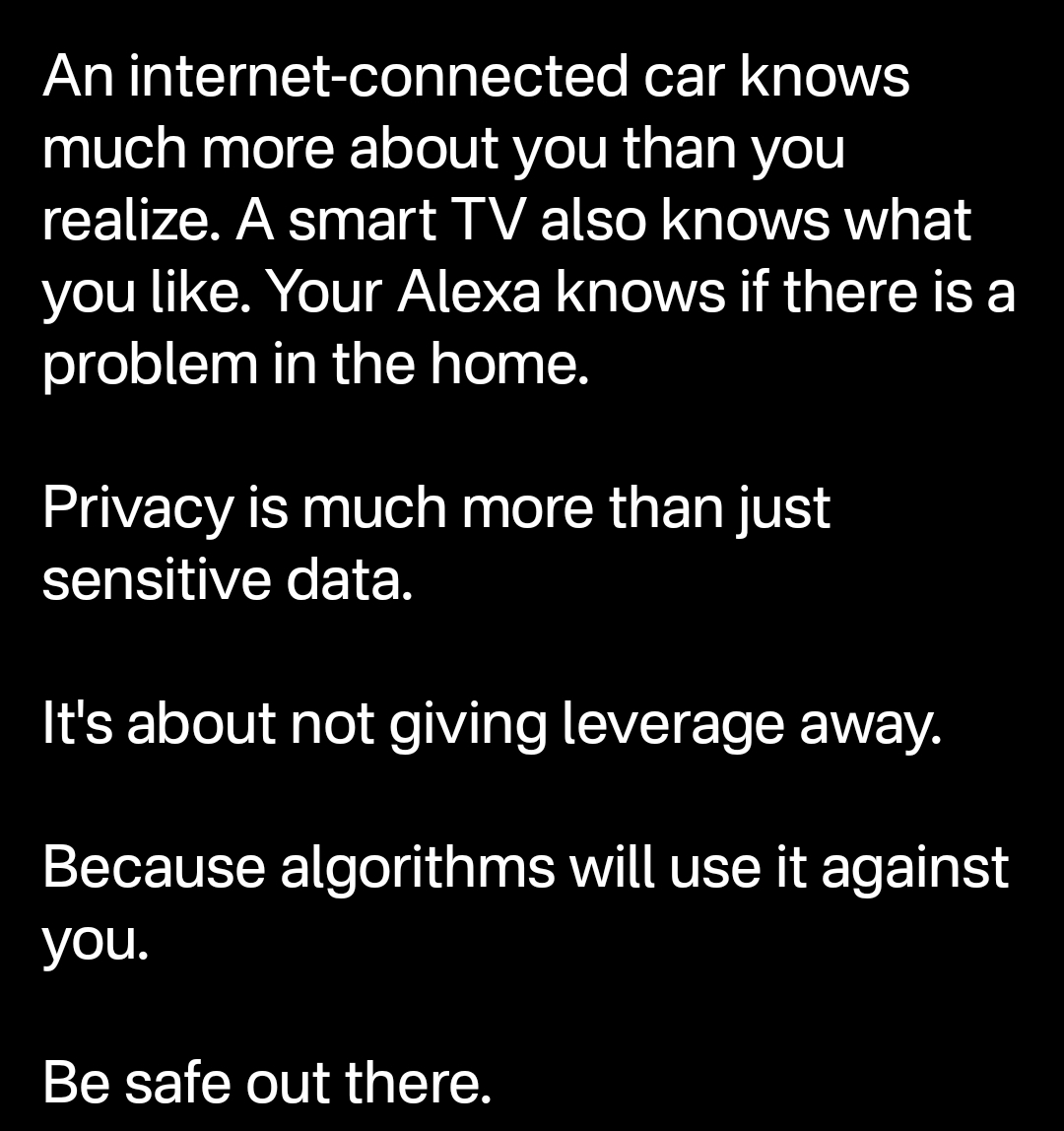
post text
Picture this:
- You type on Google “laptop won’t turn on”
- Google now knows you have a broken laptop and can estimate how desperate you are to fix it.
- Because it knows how desperate you are, it can increase shop prices proportionally.
You are going to pay the maximum they get you to pay.
That’s algorithmic pricing.
The more companies know about you, the more they can predict and sell how desperate you are to other stores out there.
An internet-connected car knows much more about you than you realize. A smart TV also knows what you like. Your Alexa knows if there is a problem in the home.
Privacy is much more than just sensitive data.
It’s about not giving leverage away.
Because algorithms will use it against you.
Be safe out there.

I think something got lost in translation, this isn’t literally about google raising your prices but about dynamic pricing + corporations having all your data. Google is just for the example.
Also incorrect. Carry on.
Can you please explain what you read it as? Are you saying it was literal and that Dell/HP/Lenovo are raising their prices immediately from the data Google obtained by you searching for a computer repair? I was under the impression it was just an example of how info can be exploited like the person you replied to. It seems like it would lose more sales than gain if that were real, as all vendors and resellers would have to raise across the board. Like Amazon couldn’t all the sudden be cheaper than you, or they’d take your sale from the manufacturers website